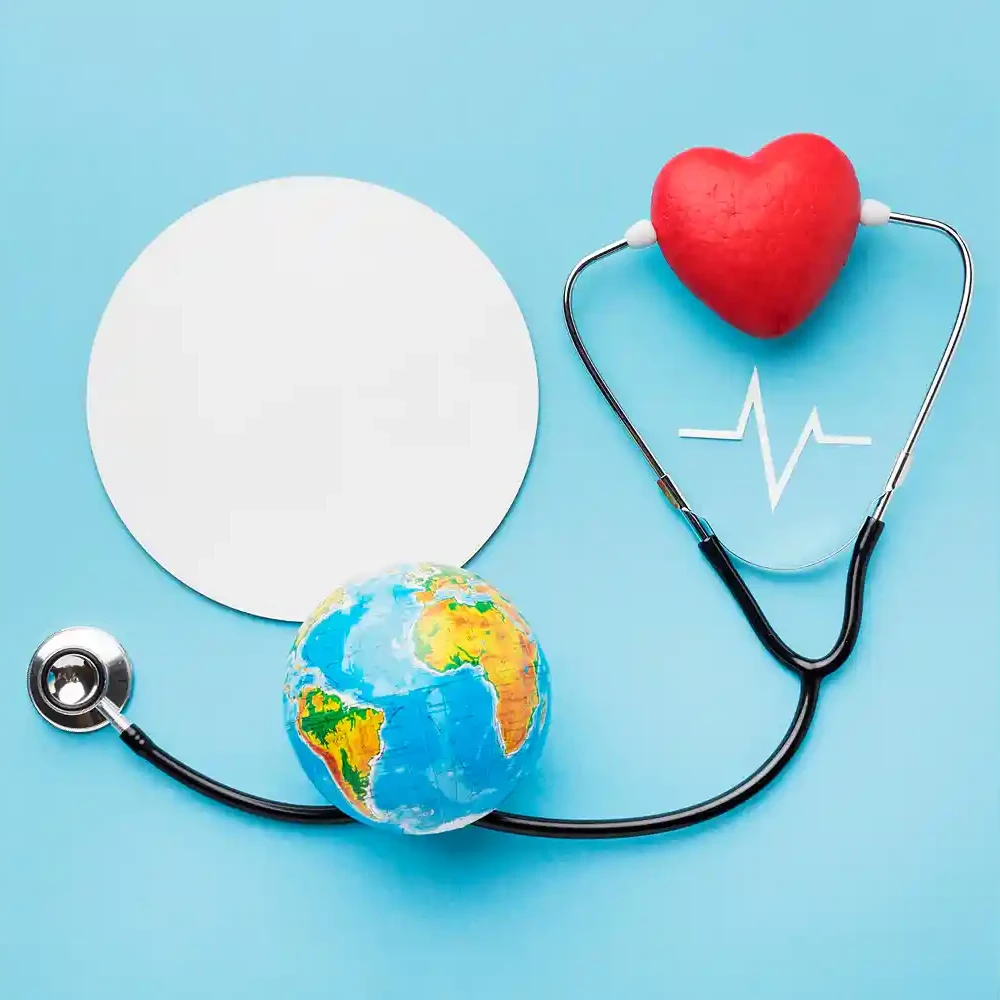In today’s world, knowing your HIV status is a vital part of maintaining your sexual health.
HIV counselling and testing (HCT) offers a confidential and empowering way to get the information you need, as it plays a pivotal role in HIV prevention, treatment, and care.
By knowing one’s HIV status, individuals can take proactive steps to protect their health, access appropriate medical care, and prevent the transmission of the virus to others.
Whether you’re in a new relationship, concerned about a past exposure, or simply want peace of mind, HCT can equip you with the knowledge and resources to take control of your well-being.
In this post, we will explore the importance of HIV testing and counselling, the different testing methods available, and the benefits of knowing one’s HIV status.
HIV counselling and testing (HCT)
In the fight against HIV/AIDS, HIV counselling and testing (HCT) stands as a cornerstone of prevention and care.
This critical process empowers individuals to learn their HIV status, a decision that unlocks a pathway towards informed healthcare choices and improved well-being.
By demystifying the virus and its implications, HCT empowers individuals to take control of their sexual health and protect themselves and their partners.
Counselling
This is offered before and after testing and provides a safe space for open discussion about HIV risk factors, testing procedures, and potential outcomes.
This personalised approach allows individuals to address anxieties and concerns associated with HIV, ensuring informed consent for testing.
Additionally, counsellors equip individuals with the knowledge to practice safer sex and reduce the risk of future transmission.
HIV counselling offers several benefits, including:
- Education: HIV counselling provides individuals with accurate information about HIV transmission, prevention, treatment, and care, empowering them to make informed decisions about their health.
- Emotional support: HIV counselling offers emotional support and reassurance to individuals undergoing testing, helping them cope with the anxiety, fear, and uncertainty associated with HIV testing.
- Risk reduction strategies: HIV counselling provides individuals with strategies to reduce their risk of HIV transmission, including safer sex practices, condom use, and harm reduction approaches.
- Linkage to care: HIV counselling facilitates linkage to medical care, treatment, and support services for individuals who test positive for HIV, ensuring they receive appropriate care and follow-up services.
Testing
The actual testing process itself is quick and confidential.
Modern rapid tests provide results within minutes, allowing individuals to receive their status promptly.
Regardless of the outcome, post-test counselling remains crucial.
For those who test negative, counsellors reinforce safe sex practices and offer guidance on maintaining HIV-negative status.
For those who test positive, HCT becomes a gateway to vital healthcare services.
Early diagnosis allows for immediate initiation of antiretroviral therapy (ART), a highly effective treatment that suppresses the virus and enables individuals with HIV to live long and healthy lives.
Furthermore, HCT empowers individuals to make informed decisions about partner notification and prevention strategies, minimising the risk of transmission to others.
The Importance of HCT
HIV counselling and testing are essential components of HIV prevention and care for several reasons:
- Early detection: HIV testing allows for the early detection of HIV infection, enabling individuals to access timely medical care and treatment. Early diagnosis and treatment can significantly improve health outcomes and quality of life for people living with HIV.
- Prevention: Knowing one’s HIV status empowers individuals to take appropriate measures to prevent the transmission of HIV to others. HIV-positive individuals who are aware of their status can take steps to reduce the risk of transmitting the virus through safer sex practices, condom use, and adherence to antiretroviral therapy (ART).
- Access to care: HIV testing facilitates access to medical care, treatment, and support services for individuals living with HIV. Once diagnosed, individuals can receive comprehensive HIV care, including regular monitoring of viral load and CD4 cell count, management of HIV-related complications, and counselling on treatment adherence.
- Prevention of mother-to-child transmission: HIV testing during pregnancy allows for the early identification of HIV-positive pregnant women. With the timely initiation of antiretroviral therapy and other interventions, the risk of mother-to-child transmission of HIV can be significantly reduced, ensuring the health and well-being of both mother and child.
The steps in HCT
HIV counselling and testing are typically conducted in a supportive and confidential environment to ensure individuals receive accurate information, emotional support, and guidance throughout the testing process.
Here’s how HIV counselling and testing are typically done:
1. Pre-test counselling
Before HIV testing, individuals receive pre-test counselling, which includes
- Explanation of the testing procedure and available testing options (e.g., antibody test, rapid test, HIV RNA test).
- Discussion of the window period (the time between HIV infection and the detectability of HIV antibodies or RNA).
- Assessment of individual risk factors for HIV transmission, including sexual behaviours, injection drug use, and previous HIV testing history.
- Counselling on HIV transmission, prevention methods, and risk reduction strategies.
- Addressing concerns, fears, and misconceptions about HIV testing and HIV/AIDS.
- Obtaining informed consent for HIV testing.
2. HIV testing
Once pre-test counselling is completed and informed consent is obtained, HIV testing is conducted using one of the following methods:
- Antibody tests: Blood, oral fluid, or urine samples are collected for antibody testing, which detects HIV-specific antibodies produced by the body in response to HIV infection.
- Rapid HIV tests: Rapid HIV tests provide results in as little as 20 minutes and can be performed using blood, oral fluid, or fingerstick samples.
- HIV RNA tests: HIV RNA tests detect the presence of HIV RNA (viral load) in the blood, indicating the amount of virus present in the body. These tests are typically used for early detection of HIV infection or to monitor treatment effectiveness.
- Home HIV testing kits: Home HIV testing kits allow individuals to collect their samples (e.g., oral fluid or blood) at home and perform the test themselves. Results are typically available within minutes, and some kits involve mailing samples to a laboratory for analysis.
3. Post-test counselling
After HIV testing, individuals receive post-test counselling, which includes
- Explanation of test results and interpretation of results (positive, negative, or indeterminate).
- Discussion of the implications of test results, including the need for confirmatory testing for positive results and the potential for false-positive or false-negative results.
- Emotional support, reassurance, and coping strategies for individuals receiving positive or inconclusive test results.
- Referrals to medical care, treatment, and support services for individuals testing positive for HIV.
- Counselling on risk reduction strategies, including safer sex practices, condom use, and harm reduction approaches for individuals testing negative for HIV.
4. Follow-up and support
Individuals who test positive for HIV receive ongoing support and follow-up care, including
- Linkage to medical care, treatment, and support services for HIV/AIDS.
- Counselling on treatment options, adherence to antiretroviral therapy (ART), and management of HIV-related complications.
- Support the disclosure of HIV status to partners, family members, and healthcare providers.
- Individuals who test negative for HIV are encouraged to continue practicing risk reduction strategies, undergo regular HIV testing, and seek support services as needed.
Obisesan Damola
Damola is a medical doctor who has worked in the Nigerian healthcare industry for a little over 3 years in a number of primary, secondary, and tertiary hospitals. He is interested in and writes about how technology is helping to shape the healthcare industry. He graduated from the College of Medicine, University of Ibadan, the foremost medical training institution in Nigeria.



